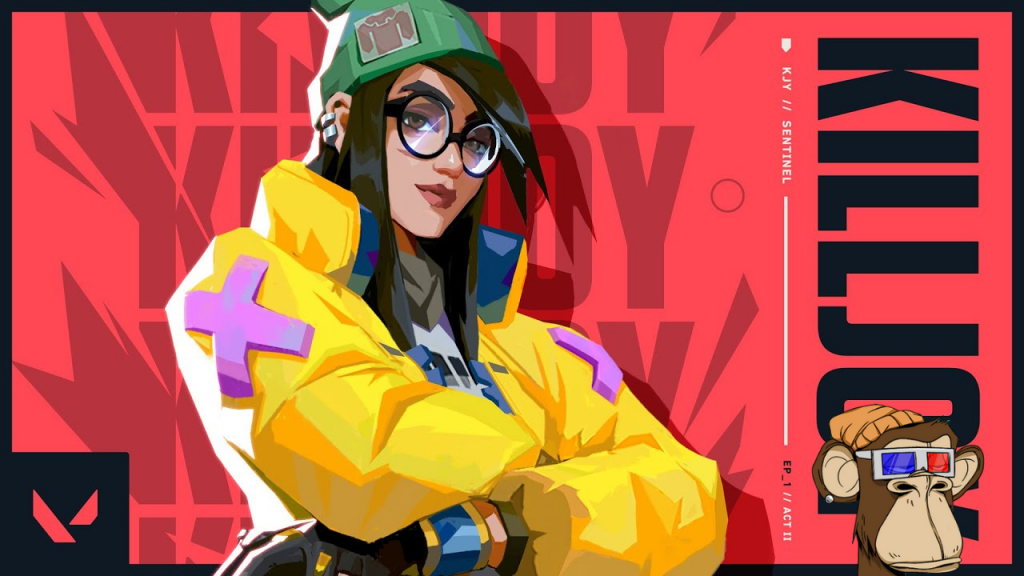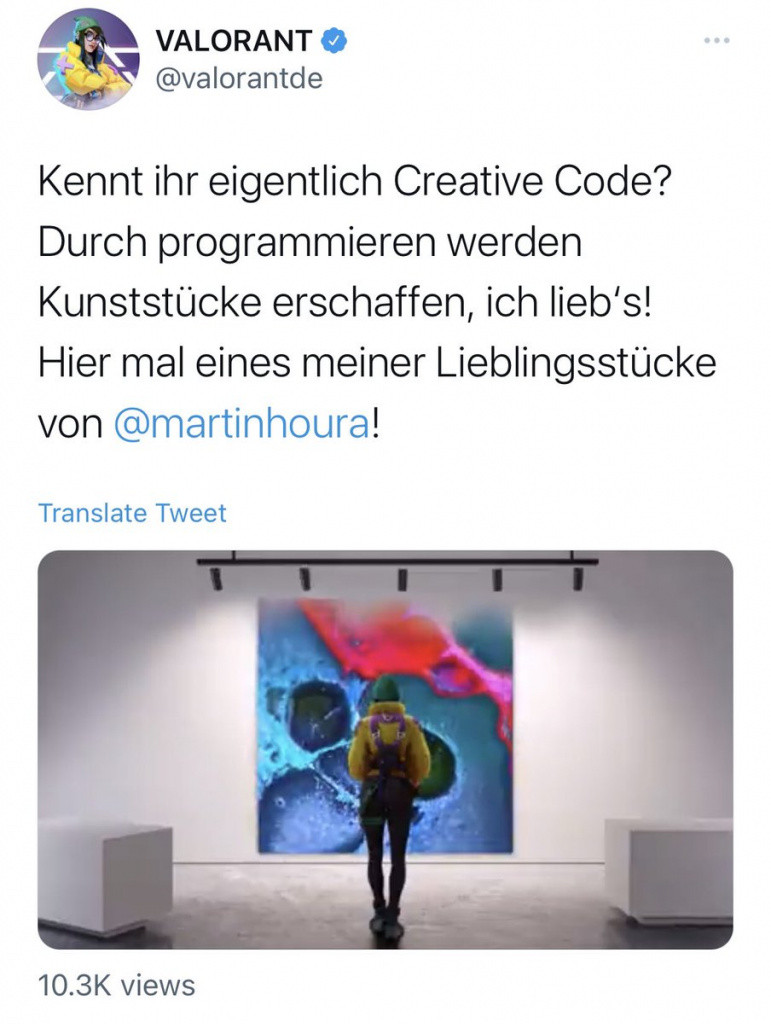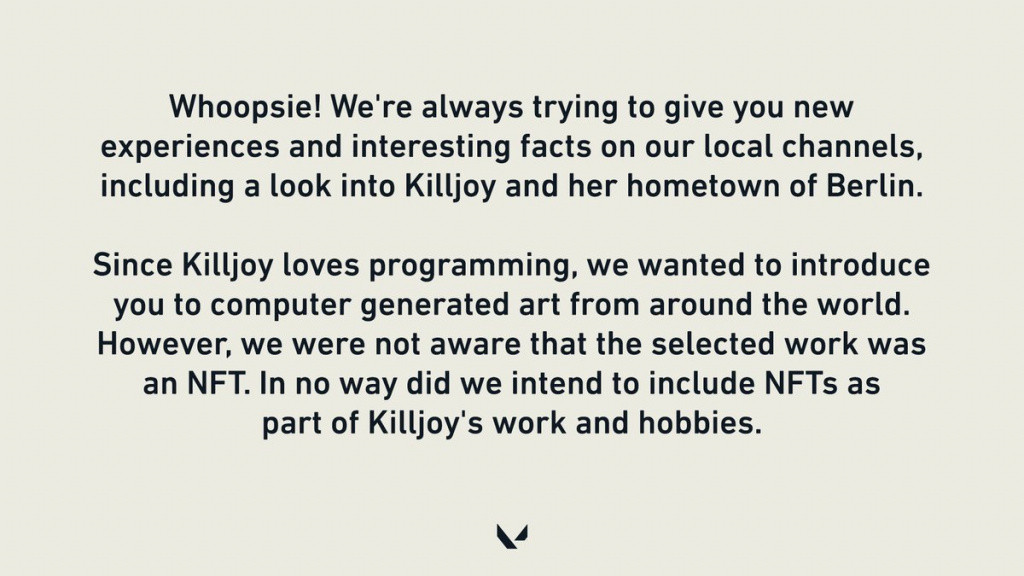
A recent Valorant social media campaign backfired when a computer-generated image turned out to be an NFT (non-fungible token), forcing Riot to take the promotional artwork down and apologise to fans.
Over the past few days the main PlayValorant Twitter, as well as regional accounts, have received multiple takeovers by in-game characters, or Agents, as they’re most commonly referred to.
From Reyna showcasing the vast wonders of Mexico to Neon, the latest Valorant Agent introducing players to the joyous Philippines, each character has gotten a chance to present their respective hometowns.
Cue tech-savvy hacker extraordinaire Killjoy, hailing from Germany. Everything was going smoothly until, unbeknownst to Riot, an image used to promote the German Agent was quickly identified as an NFT.
Riot accidentally promotes NFT during Valorant social campaign
On 27th January, the Valorantde Twitter account (the game’s German-spoken handle) uploaded artwork of Killjoy by NFT and crypto enthusiast Martin Houra, getting immediately bombarded with criticism as it naturally implied Riot was in support of such technologies or at the very least was building up Killjoy to be identified as a crypto…sis?

Luckily, neither of the above was the case, being a small mistake due to lack of proper research and sourcing by those running the German account, who quickly took the post down and issued an apology to rabid fans who already had their pitchforks out.
“Since Killjoy loves programming, we wanted to introduce you to computer-generated art from around the world. However, we were not aware that the selected work was an NFT. In no way we intend to include NFTs as part of Killjoy’s work and hobbies,” the statement reads.
What is an NFT?

So what’s all this NFT fuss about you may be wondering, here’s a very summarised breakdown. They’re a scam. Done.
Okay, in all honesty, nun-fungible tokens are essentially any form of media one can find on the internet. From videos to those godawful ape pictures that can be seen popping up everywhere on Twitter. Even your randomly tweeted shower thoughts can become an NFT.
NFTs are bought and sold with cryptocurrency (most of the time) via blockchain technology, which is an interconnected web that records every single transaction made on it, making things like theft or stealing someone’s identity to claim their digital goods a thing of the past, in theory.
What you’re getting when you own an NFT is not actually ownership over the artwork or whatever you’re trying to buy, for the most part. Listen, it gets muddy but the basic analogy for 90% of NFT content out there is this: You buy a ticket that says you own the Mona Lisa but the Louvre Museum retains it and still profits off of it.
What I’m trying to say is they’re a scam.
Featured image courtesy of Riot.